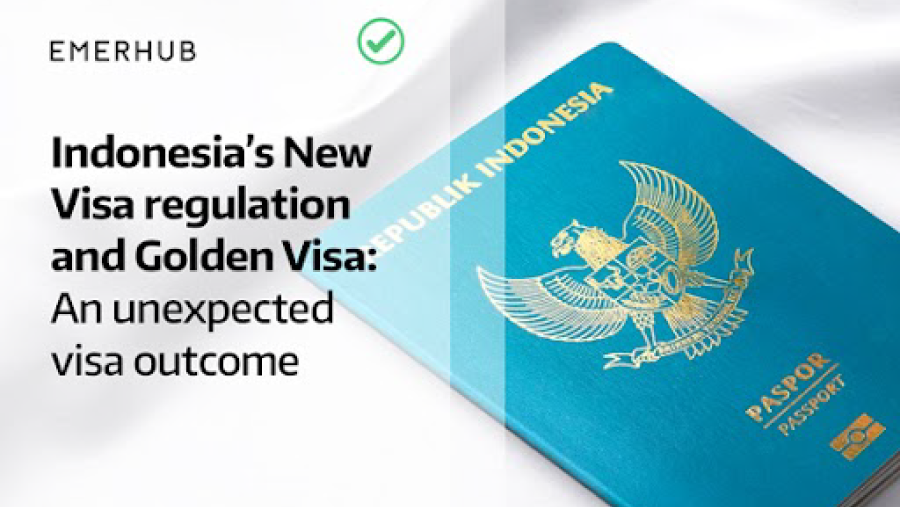Table of contents
There are many common mistakes foreigners make when they start to set up company in Indonesia. Some of them happen due to lack of preparation, some of them as a result of twisting the law.
This article helps to avoid those mistakes and get your company up and running without unnecessary delays.
#1 Not considering the requirements for living and working permits (KITAS) for your staff
This is one of the most common errors made by start-ups and entrepreneurs. To work legally in Indonesia you require permission from the Ministry of Manpower. There is often confusion around the process required to obtain a work permit, due to complex rules. In recent years the process has become easier than it once was. You can lose control of a business, be fined, or even be removed from the country.
Our digitally advanced society, however, unlocks opportunities when doing business. Namely, outsourcing non-core business processes. An employer of record service may offer all the benefits of fast expansion into Indonesia and employing local staff, without the time-consuming process.
#2 Failing to have a business plan while you set up a company in Indonesia
The first question anyone who’s thinking to set up a company in Indonesia should ask themselves is: What will my business activities be?
Some businesses try to set up several activities under one company in an attempt to buy some time to evaluate the market. There are limitations on the business classifications that can be registered under one PT PMA. See us covering this more in-depth on our recent blog article How to Start a Lifestyle Business in Bali.
Your business activities are also important because they determine your business classification (KBLI). There are classifications for a business that can be owned 100% by foreigners, however many of them are in the negative investment list and restrict or prohibit foreign ownership.
#3 Not using a professional corporate registration agent to get it right the first time
As in any field of business, it is important to be diligent about who you are conducting business with. New businesses just establishing themselves in the region are particularly vulnerable to agents. They may be offering their services that turn out to be incomplete, or deceitful. Find a service provider whose background you have checked and behavior you can trust.
Once you have chosen an agent, keep an eye on the progress. A common mistake is when an agent does not ask for the power of attorney from the client. This opens the door to possible forgery. If the agent forges your signature, it means that you have no control over what they could apply for. It happens more often than you would think.
It is possible to register a PT PMA without the help of an agent. However, unless you are incredibly well informed about sudden changes in regulations, mistakes will occur. This means your application will either be refused or delayed, both resulting in wasted time and money.
With Emerhub your company will benefit from years of experience and corporate knowledge, assisting you to navigate the complexities of Indonesian law and regulations. Benefit from our knowledge of the market and our attentive customer-focused approach to service.
#4 Starting the company with too little capital investment
Emerhub strongly advises against using the minimum amount of capital to establish your foreign-owned company (PT PMA). Small companies can’t hire foreigners or join big tenders. Increasing your capital in the future can be more complicated than starting the company with bigger capital from the beginning.
To protect local businesses, a foreigner can set up a company in Indonesia with a minimum amount of paid-up capital of IDR 2,5 billion.
Prior to incorporation, it is a good idea to consider the size of the team you will need to achieve your business goals. How many foreigners do you plan to hire in the following couple of years? This will allow you to ensure you have enough capital to provide a greater chance of success.
The current capital requirement in Indonesia is IDR 1 billion for each foreign employee. Changing this number at a later stage is both time-consuming and costly.
Indonesian company law defines business sizes based on their capital:
- 0 – 50 million IDR: micro business
- 51 million – 500 million IDR: small business
- 501 million – 10 billion IDR: medium-sized business
- > 10 billion IDR: large enterprise
Read in detail about the minimum capital requirements for setting up PT PMA.
If you only seek to set up company in Indonesia to hire local employees then it may be better to use the staff augmentation service instead.
#5 Leasing property without checking the IMB (building permit)
The building permit, or IMB (Ijin Mendirikan Bangunan), needs to be suitable for company registration. Without it, the property is pretty much useless to the investor for business purposes.
Checking property documentation thoroughly, or hiring an agent to do so on your behalf, can help you avoid leasing a property that does not meet the proper requirements.
#6 Running into obstacles by planning too far in advance
Business regulations can change rapidly in Indonesia. While it is important to have a good idea about the nature of your business and goals, it is also not practical to make a five-year plan as flexibility is important to capitalize on changing business conditions.
As a rapidly growing and evolving market, things change in Indonesia almost daily and with them so do the business opportunities for growth and expansion.
Recent history has proven Indonesia is a fairly stable market. Delaying plans may mean you face greater competition.
#7 Losing control of your business by making risky nominee arrangements
Nominee arrangements made with friends or family can be one of the riskiest when entering the market. A secure solution is having a nominee agreement with a proper structure.
For example, instead of choosing nominee individuals you can use a company such as Emerhub to sign a nominee agreement with. After the agreement, your business can either use Emerhub or a trustworthy local corporate nominee to pledge the shares. This way you have documentation that is approved by Indonesian laws and can safely conduct business.
An agreement like this minimizes the risk of a nominee leaving with your assets or being unable to manage the company without nominee support in the future. Using a nominee company instead of an individual also eliminates risks such as death, divorce or marriage which can impact a nominee arrangement.
#8 Not reporting tax and investments correctly
Tax reporting in Indonesia
Always report your taxes on time from the very beginning. You must report tax immediately after receiving your tax card, regardless of whether you had any activity or not. This is something that the authorities in Indonesia are monitoring closely.
Tax reporting is not complex and can be easily outsourced if you don’t have an accountant on your payroll. There’s really no excuse why to skip a report and attract the tax office attention.
Key areas of compliance
Other key compliance areas foreign-owned businesses must follow are:
- Social security programs (BPJS)
- Investment reporting
Providing health insurance for your employees is mandatory. Another crucial compliance area to be on top of is investment reporting – every PT PMA must report its investment activity. There are different deadlines depending on what stage your business is in.
You must nominate a responsible person to report as per BKPM. This does not need to be an employee of the company. Emerhub can take care of your investment reporting in Indonesia.
#9 Failing to be flexible and “go with the flow”
Those new to the Indonesian market often want to see an exhaustive checklist of requirements before they decide to establish in the market. This is often not possible as laws are subject to change and authorities have wide discretion rights to ask whatever requirements they want to. Being flexible and agile to adapt to the market is a good idea when doing business in Indonesia or you may be unable to take advantage of the opportunities available.
Some entrepreneurs entering the market unrealistically expect that conditions will be similar to those they may be more familiar with within their own country. For the same reason that Indonesia has become a hotspot for start-ups – its emerging market status – legalities can sometimes take time.
#10 Running into enforcement issues by picking and choosing which laws to comply with
Processing the required permits costs money and takes time, which often entrepreneurs are not willing to invest in. This may be because they are not familiar with the procedures or they wish to start the business faster. Unfortunately, it’s illegal and not sustainable.
Keep an open mind and even if your experience is different, be tolerant and accepting of the laws you are facing. If some laws are confusing, this is no reason to disobey or bypass the law, this is where you should ask help from an agency.
#11 Losing money due to unrealistic expectations about the time it takes to get started
Despite the fact that doing business in Indonesia is getting easier every year, it’s undeniable navigating the requirements can take time.
For entrepreneurs used to timelines in established markets, it’s wise to prepare for different timeframes in Indonesia. The minimum times set out in law are a guide only, and can be impacted by anything from online systems being disrupted, office closures, holidays or religious ceremonies. This is part of Indonesia’s life and needs to be respected and factored into your business planning.
#12 Losing out on a big opportunity – by giving up before beginning!
Many entrepreneurs come to Indonesia with big plans but are quickly overwhelmed with the prospect of navigating complex rules and regulations to set up company in Indonesia. They often choose not to start a business at all as everything seems too complicated and expensive. However, this can be a competitive advantage. Competition in the market is not fierce because many people hesitate and decide not to proceed.
An entrepreneur will be successful in Indonesia when he or she overcomes the fact that surroundings are a limitation and sees them instead as an opportunity. This is what Indonesia is all about – exploring the possibilities and coping with what may come along during the journey!







